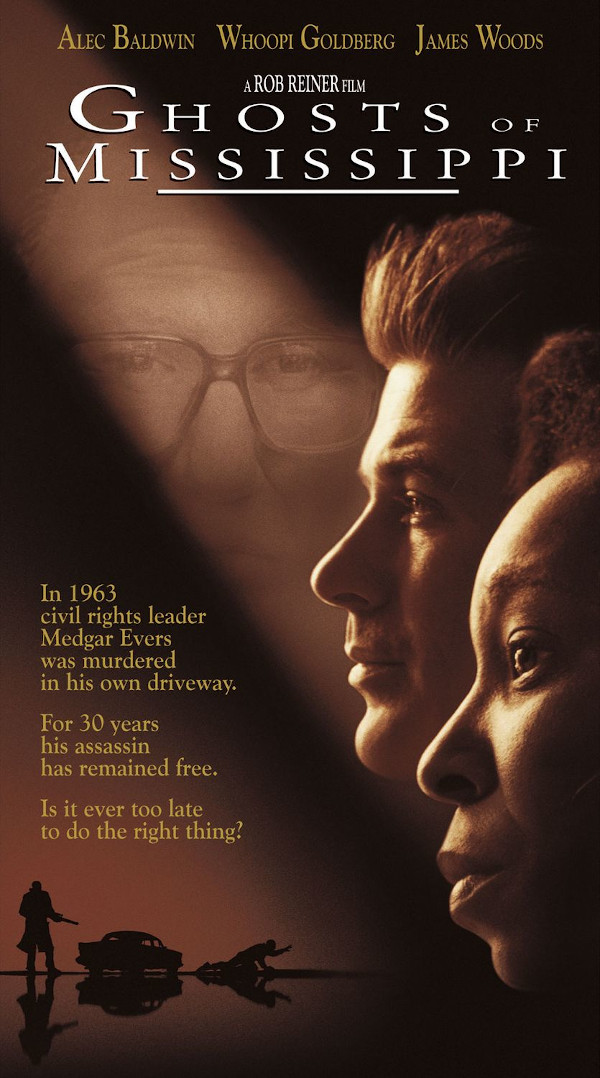- Title: The Ghosts of Mississippi
- IMDb: link

Throwback Tuesday takes us back to 1991 and director Rob Reiner‘s biographical courtroom drama The Ghosts of Mississippi concerning the prosecution of white supremacist Byron De La Beckwith (James Woods) 30 years after he murdered civil rights activist Medgar Evers (James Pickens Jr.). With most of the movie set in the early 1990s, Alec Baldwin stars as Assistant District Attorney Bobby DeLaughter who picks up the threads of the case after meeting the victim’s widow Myrlie (Whoopi Goldberg) and attempts to get justice for the Evers family despite the trouble it stirs up around town and within his own family.
Both a commercial and box office failure, The Ghosts of Mississippi is an odd film that at times feels cinematic but at other feels very much TV-movie of the week, especially in some of the staging and reaction shots to events. Primarily a courtroom drama, from a plot perspective it may make sense to structure events around DeLaughter, who ends up fighting everyone from his boss, his wife played by Virginia Madsen in a thankless role, and, in some highly questionable writing, even the Evers family, but unfortunately this paints DeLaughter in the role of white savior (a choice which hasn’t aged well).
The performances of Baldwin, Woods, and Goldberg are all notable, with Woods getting the most recognition for his turn as the fascist killer, as is the film’s setup in exploring the events of seeking justice delayed for decades, but the end result is mixed. The women of the film get small moments, but both Goldberg and Madsen are left with mainly scraps in the male-dominated story. And with Woods being the only other large personality in the film other than Baldwin, we end up with a white-dominated biopic which pushes the Evers family to the sidelines.
The Ghosts of Mississippi isn’t a film you would likely search out on your own, but at its best it will raise questions and interest about Evers, DeLaughter, and the long-delayed justice in Mississippi. As a courtroom drama the film also doesn’t do anything all that memorable with so much of the plot focused on the search for evidence and witnesses that have disappeared over the years there isn’t all the much time left for legal maneuverings with the tension instead coming from racist fabric of the South itself and whether a black man could get justice even three decades after his murder.
Watch the trailer
